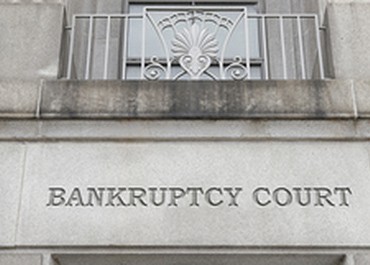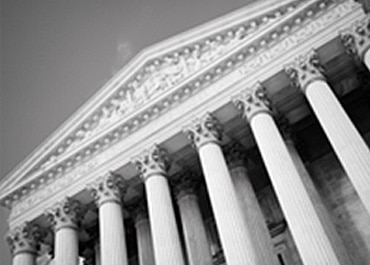We’re very excited that the “Deal Pipeline” quoted us in Don Lonkevich’s article about our successful defense of two involuntary bankruptcy petitions against a publicly traded corporation and its subsidiary. Read the article here: LuxeYard Close to Dismissing Bankruptcy By Dan LonkevichRead More

We can’t overemphasize the importance of filing accurate schedules and statements in a bankruptcy case. Regardless of lawyers’ skills, clients must review their schedules carefully before signing them. The recent decision in Crawford v. Franklin Credit Management Corp.1 (“Crawford”) illustrates the dangers of inaccurate schedules and a lucky “escape hatch.” The Debtor filed a chapter 13 case (the “Case”). Her schedules and statements omitted her fraud claims against a predatory lender (the “Claims”). The Case was dismissed for the Debtor’s failure to pursue it. Later, the Debtor sued the lender asserting these… Read More

A Good Bill Which Can Be Improved with Little Effort 1 2 The foremost cause of bankruptcy filings is “medical debt.” Medical salvation can yield financial ruin. S. 2471 Recently, Senators Elizabeth Warren and Sheldon Whitehouse submitted the “Medical Bankruptcy Fairness Act of 2014” S. 2471 (the “Act”) to the Senate Judiciary Committee. The Act removes an obstacle to relief under chapter 7 of the United States Bankruptcy Code (the “Code”) faced by consumers with above-median income, laden with “medical debt.” 3 It removes the impact of failing the “means test”: a.)… Read More

The Eastman Kodak Company reorganization2 provided a “shot in the arm” for debtors and a shot at landlords to be reckoned with. In re Eastman Kodak Company, 495 B.R. 618 (Bankr S.D.N.Y. 2013) (“Kodak“). The Power of Bankruptcy Code § 365 Bankruptcy Code (the “Code”) § 365(b) and (f) enable trustees and chapter 11 debtors-in-possession (“Trustees”) to assume (keep) and assign (transfer) unexpired leases of non-residential property (e.g., commercial leases [“Leases”]) to which the debtors were parties before their bankruptcy. This enables Trustees to keep a valuable, below-market Lease for continued operations… Read More

On June 12, 2014, The United States Supreme Court determined that Bankruptcy Code § 522(b)(3)(C) does not exempt inherited Individual Retirement Accounts (“IRAs”) from creditors’ claims in individual bankruptcy cases. Clark v. Rameker, 134 S.Ct. 2242 (2014). Background Ms. Clark inherited her mother’s $450,000 IRA in 2001. She filed for bankruptcy relief in 2010 after spending the IRA down to $300,000. Her bankruptcy schedules listed the IRA as exempt from paying her creditors’ claims. Ms. Clark asserted that Bankruptcy Code § 522(b)(3)(C)’s exempting “retirement funds to the extent that those funds… Read More

I am an entrepreneur with a business in New York. My business is having problems. How do I survive? Entrepreneurs are optimists by nature. Recognizing there’s a problem is a big step in “entrepreneur rescue.” Next comes identifying the problem, then how to fix the problem, and finally, how to fix the fallout the problem created. Your accountant can help by identifying the answers to the following: Is it cash in, or cash out? What’s causing the unhealthy imbalance? Can the cause be fixed? If so, how and at what… Read More

Cliven Bundy would like folks to think he’s a big, tough, independent cowboy being run off his land by the Federales. Ain’t so. Clive Bundy was sued by our country for using our national park to graze his cattle without permission or paying for it. He was sued in May 2012, had the wisdom to represent himself, claimed that the land didn’t belong to the U.S. (yeah, us), and lost that lawsuit, fair and square, in July 2013. He appealed the order directing him to move his herd off those lands, or… Read More
Route 21 Assoc. of Belleville, LLC v. Millennuim Custodial Trust (In re Lyondell Chemical Company). —-, 2013 WL 5733196 C.A.2 (N.Y.),2013. The Second Circuit Summary Order’s terms render it of no precedential value. Nevertheless, the decision is instructive. The Summary Order adopted the District Court’s decision which denied a purchaser of environmentally contaminated property’s motion: a.) to compel the debtor-seller’s specific performance of a site remediation agreement; and b.) for an administrative priority for the creditor’s future clean up costs claim. The Second Circuit restated the debtor’s right to reject…Read More
The October 21, 2013, New York Times discussed a case highlighting the need for a law exempting New York State’s residential leases from being used to satisfy creditors’ claims from judgments or in bankruptcy. Since 2005, the “homestead exemption” provided New Yorkers owning their homes increased from $10,000 to $150,000 of equity in their homes. The amount effectively doubles if the home is jointly owned. For renters, only their security deposits are exempt. This ill of this discrepant treatment is apparent when a tenant has a very valuable, low-rent lease.…Read More

